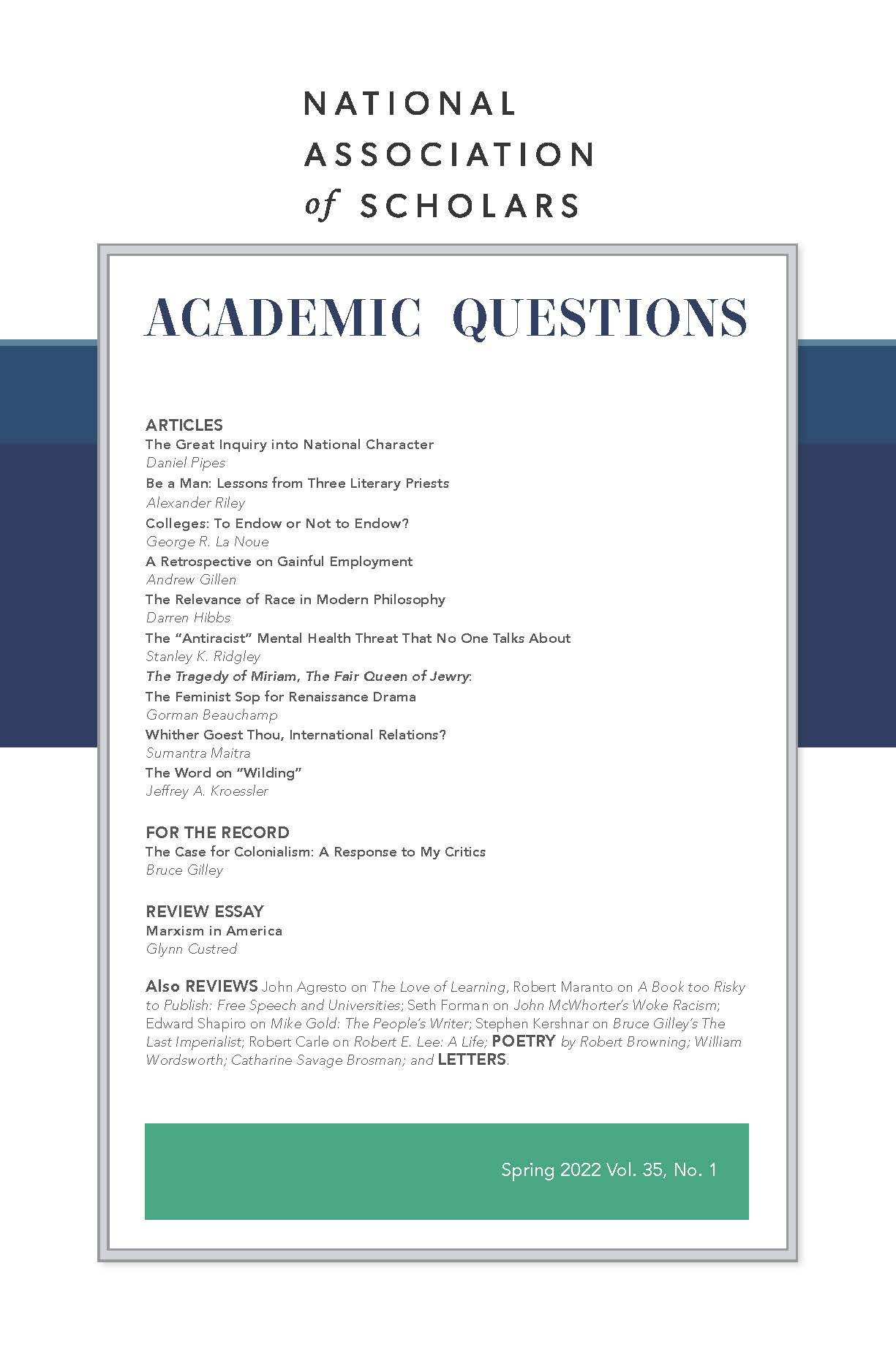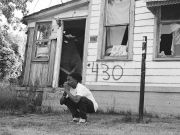A Book Too Risky to Publish: Free Speech and Universities, James R. Flynn, Academica Press, 2020, pp. 332, $29.95 paper; $28.45 kindle.
Robert Maranto is the 21st Century Chair in Leadership in the Department of Education Reform at the University of Arkansas; [email protected]. He last appeared in AQ with “Diversity Training is Unscientific, and Divisive,” with Craig Frisby (Summer 2021).
Longtime New Zealand Professor James R. Flynn, a political scientist and Renaissance man known for the Flynn Effect reporting and explaining gradually rising IQs across the globe, knew a great deal about the importance of free inquiry. As a young leftist Flynn lost two U.S. college teaching jobs for ideological reasons in the closing years of the McCarthy era, only to suffer the indignity of having his final book cancelled by a British publisher for political incorrectness. Despite decades of leftist political activism including losing campaigns for the New Zealand House of Representatives, Flynn had long been a bete noir of the postmodern left because he studied intelligence and, as a true intellectual, respectfully debated rather than denounced conservative thinkers like Charles Murray. (Murray endorsed this book.)
In true intellectual fashion, Flynn amassed support from nineteen leading intellectuals including Jonathan Haidt, Steven Pinker, Peter Singer, and Thomas Sowell, who urged the book be published. Flynn found a new American publisher, mischievous Academica Press, and renamed it from In Defense of Free Speech to A Book Too Risky to Publish: Free Speech and Universities. The result is a delightful odyssey explaining why free inquiry made Western education great, with warnings that “loyalty oaths,” whether from the right as in the 1950s or the left as in today’s required pro-diversity statements, have “the usual effect of all such interferences with freedom of thought by singling out the best of people for sanctions,” while others just lie about their views. (9) Along the way, Flynn offers thoughtful summaries of the research on educational controversies from racial differences in IQ to the ever-declining hours college students spend studying—with corresponding declines in learning. Flynn, who at age eighty-six died shortly after publication, paints postmodernist threats to free inquiry as likely exceeding their 1950s counterparts since they come primarily from within rather than from outside higher education. McCarthy era dangers came from conservative alumni and state legislatures whose limited attention spans limited their influence. In contrast, contemporary threats to free inquiry come from leftist students, faculty, bureaucracies, and whole postmodern fields like women’s studies and black studies, which exist largely to censor apostates.
Chapter Ten summarizes how postmodern attacks on free inquiry have damaged Anthropology, Sociology, Psychology, Philosophy, and Politics, with special attention to university presses and scholarly journals, which hold the keys to professorial advancement. Conceptualizing hostility to free inquiry as a pipeline problem, in Chapter Eleven Flynn takes special aim at leading schools of education, which produce the intellectually limited, sometimes censorious teachers who train the students who go on to shape higher education.
A Book Too Risky to Publish is essential reading for anyone who wants to know how we lost free inquiry and why we must get it back.
Photo by Michael Dziedzic on Unsplash













